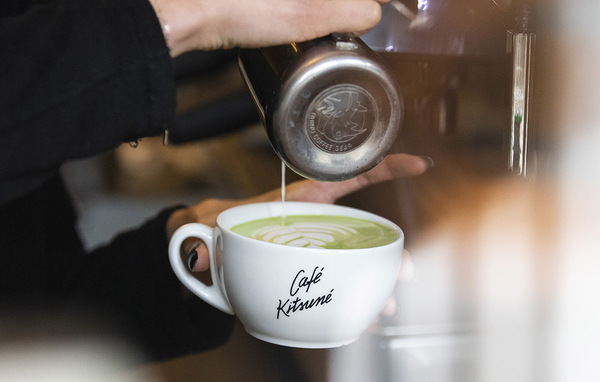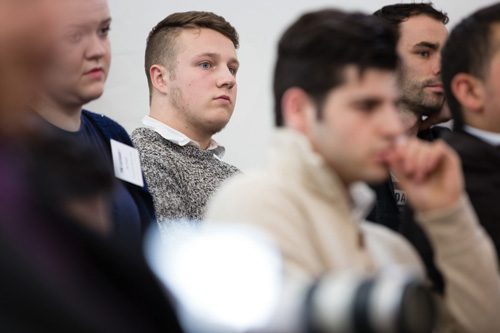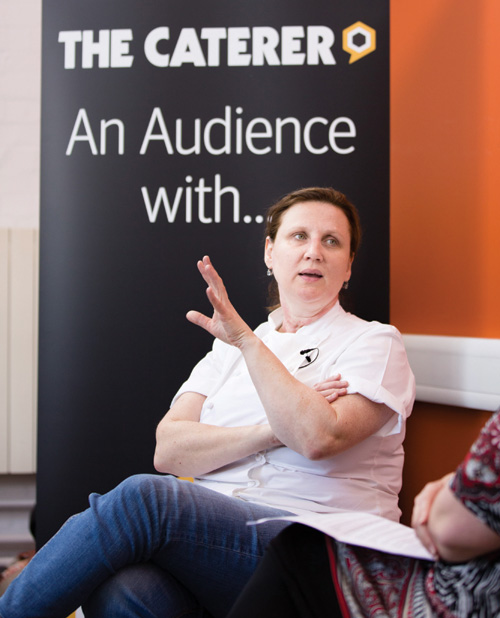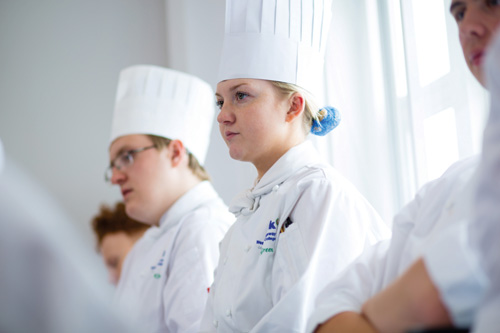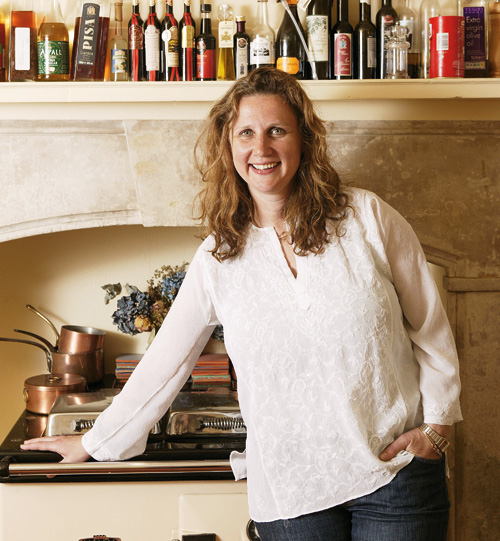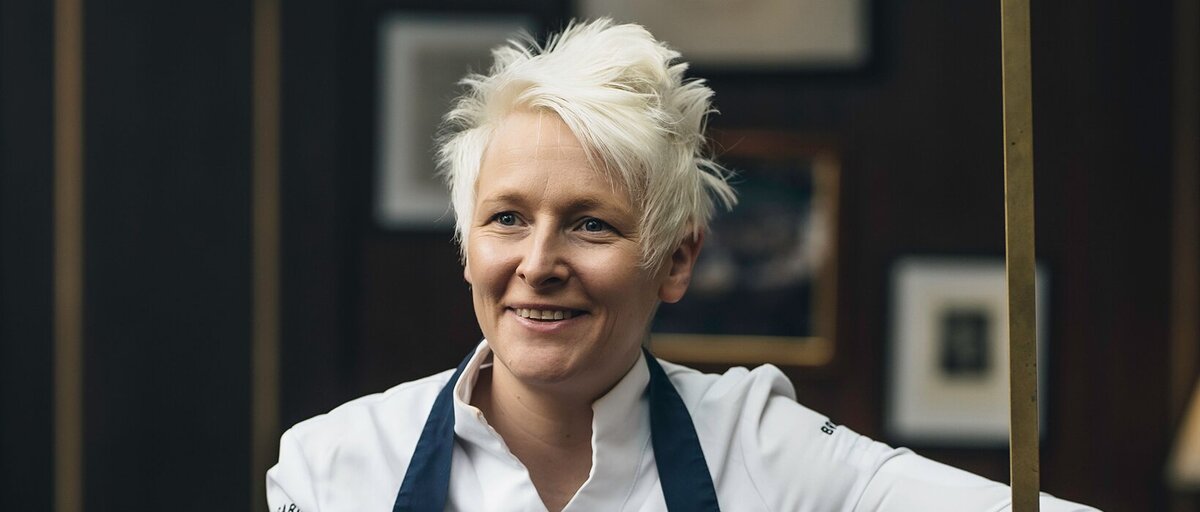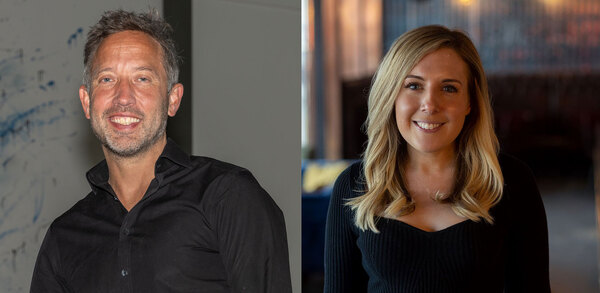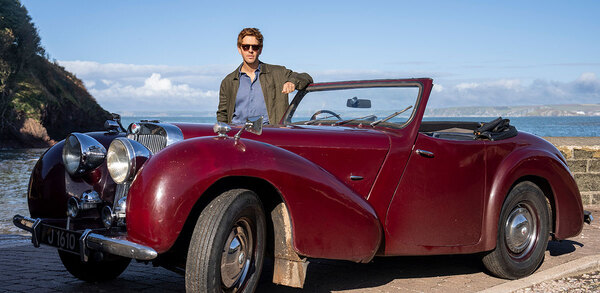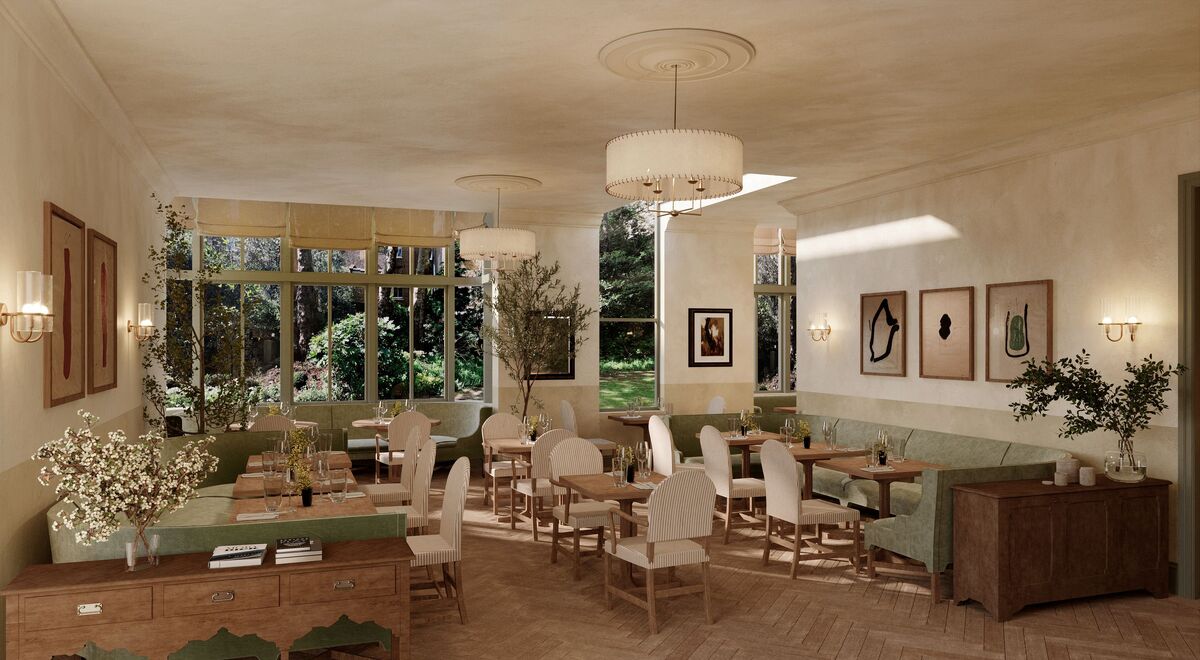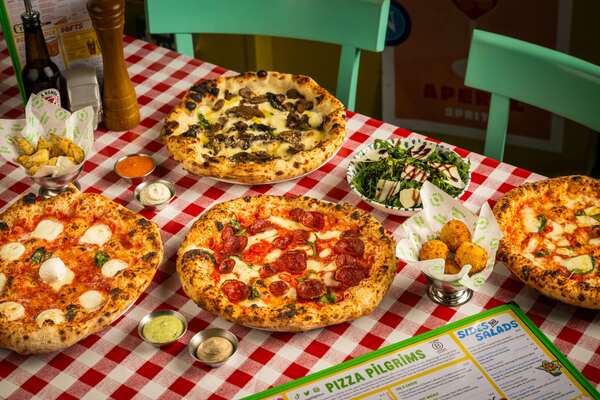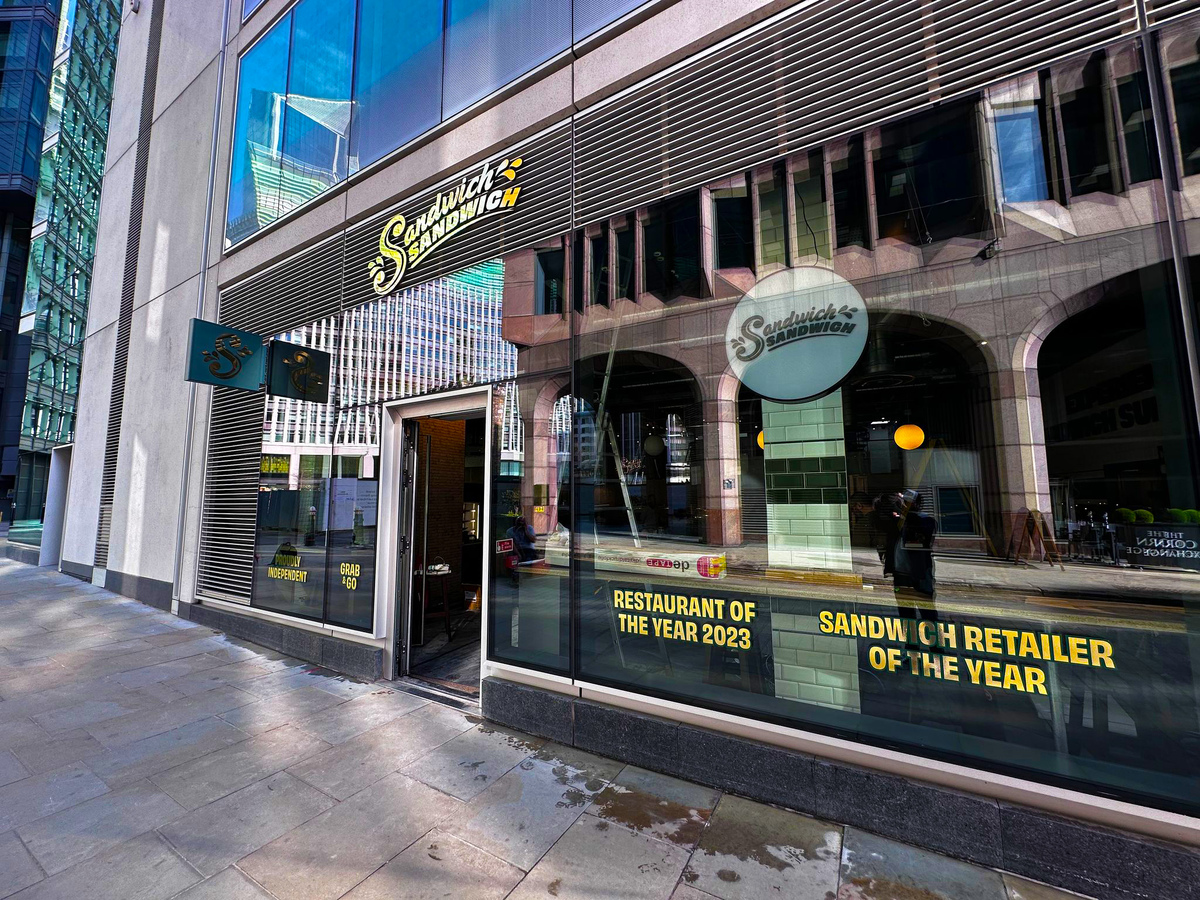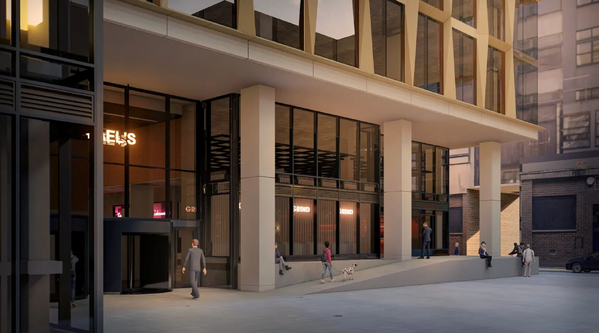An audience with… Angela Hartnett
In the third of our events in association with sponsor CCS, Michelin-starred chef Angela Hartnett joined The Caterer editor Amanda Afiya to share her career wisdom with aspiring chefs at Westminster Kingsway college. Hannah Thompson reports
For someone who only started cooking after university, chef Angela Hartnett has managed a spectacular career. From her first proper kitchen job in the infamously tough setting of Gordon Ramsay's Aubergine to becoming a favourite at what was then Gordon Ramsay Holdings (GRH), she then went on to work at Zafferano and L'Oranger, before becoming head chef to Marcus Wareing at Pétrus in St James's, London. Once nicknamed "Dizzy Lizzy" by Ramsay, she soon became one of his most trusted chefs, and counts Wareing and Jason Atherton among her peers.
Having travelled abroad to set up Dubai restaurant Verre and Florida site Cielo for GRH, she then had her name over the door at the Connaught in London for over five years. Since establishing herself as an authority on Italian cuisine (taking inspiration from her maternal grandmother from Bardi in Emilia-Romagna), the chef is now a media staple, appearing regularly on magazine food pages and prime-time television, having written three of her own books.
Now she is chef-proprietor of her own restaurant, Murano, which she opened in 2008, is on the board at Robin Hutson's Lime Wood Group, as a result of her restaurant there, Hartnett Holder & Co, and is also embarking on a long-term expansion plan for brasserie-style sister group Café Murano. And yet the busy chef still found an hour to talk career moves, kitchen hierarchy, the changing face of hospitality and the importance of a tasty plate of food during our recent interview at Westminster Kingsway, sponsored by CCS.
Beginnings
What made you want to become a chef?
Where did the idea for a restaurant come from?
My grandfather was one of three brothers and they all had fish and chip shops. My view was to run a small restaurant and run it with my boyfriend at the time. I thought it would be easy. I never thought Iâd go on to do what I do now.
You started working for Gordon Ramsay in 1994. How did that come about?
There werenât many restaurants around then, compared to this massive influx everywhere like we have now. Not many people wanted to work for six days a week so it was almost easier. I applied to lots of places, but Gordonâs seemed like a great place to work. I did a day there, 7am to midnight, and came away buzzing.
He is known for being intimidating. How did you cope with that?
If Iâm honest, I didnât think about it too deeply. It wasnât until my first week or so was over that I realised how hard it was. I didnât even think to ask about the hours.
I didnât understand what intimidation in a kitchen hierarchy meant, because I hadnât come through that harsh training route. I think maybe the difference is that Gordon is only two years older than me, so even though he had done more than me at the same age, to me he was a bit like an older brother.
I admit, the first three months were horrendous. Every day I was getting shouted and screamed at. I would think, âRight â" Monday, no bollockings, Tuesday, no bollockingsâ¦â and then I tried to get to the end of the week. When I first had a week without any bollockings, I realised I was doing OK. I made friends for life. There is some real camaraderie there.
Do you think it gave you a strong foundation?
Without a doubt. I wouldnât be sitting here [running my restaurants] without Gordon.
He gave me ample opportunities. If you were keen and showed ambition, he was willing to support that. He gave me my restaurant. I would never have been able to go into it just by myself or have the finances to buy Murano at the time. It was huge in that respect. He gave me the chance to try lots of different things. We went out to cook for the troops in Afghanistan and to numerous food events in Singapore and Aspen â" Gordon was the name. At that time I was just enjoying it.
The Connaught
You had a really high-profile opportunity to take on the kitchens at the Connaught â" the first female chef to do so. What was that like?
I loved the job and I still think itâs a brilliant, iconic hotel. The customer base was phenomenal â" we cooked for Sir Paul McCartney and Michael Caine. But I did have some people call up and ask, âis she still there?â as they did not want a woman cooking. I had a great manager, Anthony Lee, who is now at the Hotel Royal, and it put me in good stead for Lime Wood [and her restaurant with head chef Luke Holder, Hartnett Holder & Co, at the Hampshire hotel].
You were at the Connaught for five years, then you opened Cielo in Florida. Was that tough?
I was interested to understand the US market. We were in a hotel that didnât allow outside guests in, and that was a challenge, because if they had a whole hotel with people at a conference, we were empty. I donât think we should have agreed to not let outside guests in. It was a hard learning curve â" Iâd be more sceptical now.
Youâre known for Italian cuisine. When do you think you really started cooking your own food compared to what Gordon wanted?
I would say it started at the Connaught. Murano is more the style of food that I want, and I think Café Murano and Lime Wood have that too. I donât like all the foams and gels and stuff. Itâs just about doing very good food â" keeping it simple and using very seasonal produce. Itâs never lost money and it continued to grow straight away. It had great reviews. Weâve been lucky.
Your âsplitâ from Gordon was amicable. Was that important to you?
Yes, I donât like to fall out with people. Gordon and I got on very well and I was emotional when I left. It had been 17 years. He said, âDonât worry, people move on!â
Murano and Café Murano
When Murano became yours in 2010, you must have felt a great sense of responsibility
It was enormous. At the end of the day, you have to pay the staff, the mortgage, the debt. I donât think people realise that I took out a bank loan and my house was mortgaged up to the hilt; if I defaulted I would lose my house and my business. Itâs only in September this year that itâs all paid off. The bank has been gobsmacked, but weâve been determined.
Two years ago, you opened Café Murano, and the second site opened in the summer; talk me through that
The idea for Café Murano was to roll out a concept that maintained the same quality, but that we could sell and make money from. I wanted somewhere you could come to have the old classics. We even had a lasagne for two people that sold like the clappers. Itâs about not trying to be too clever.
You have to turn covers to make money. At Murano, people can sit at the table for hours, but if youâre at Café Murano, weâd get eight people on one table â" not just two people all night. I was taught a very basic business model. Murano works well though, because our staff levels are kept tight.
So Cafe Murano is your pension. How many outlets can you see?
Weâd like five to eight, but weâre not sure at the moment. Letâs see how [the latest branch] Tavistock Street goes.
What drives that expansion?
Weâre at that stage where weâre not big enough to get our own accountant and our own HR, but we soon will be. Once weâve got the third site, itâs not much more work â" youâre just replicating. I think it is a scalable model.
Will we see it outside London?
If we could â" we could take it to somewhere like Edinburgh or Dublin. Itâs just about getting the maths right.
Partnerships
You must get approached about lots of different things? How do you consider them?
Never say never â" Iâll always have the conversation. Someone approached me about a hotel in Oxfordshire, and I said, Iâll happily talk to you about it, but I can tell you Iâm not going to do it because Iâve got my partners at Lime Wood. But if something came up in Dubai or New York, thereâs always a conversation to
be had.
The hardest thing is to say no, sometimes. Youâve got to think it through and think, âCan I physically do that?â
How did the partnership with Robin Hutson come about?
Iâd met him a few times at the Connaught, and he had done this Hospitality Action event, which Iâd cooked at. He just asked, are you interested? He had a fine-dining restaurant which wasnât working; the atmosphere was a bit stiff for a weekend away. I was interested in working with Robin; Iâd heard a lot about him and found him inspiring. If I donât want to work with you, it doesnât matter how much cash you put on the table.
Robin obviously values your approach. How does sitting round the board table change you?
I think it makes you a lot more astute, as you have someone to bounce ideas off. Thereâs a real honesty. There always has to be someone who makes the final decision, but Robin will let everyone else make a point, and then he makes a decision. You also manage your time a bit better when you canât do everything. You canât be in on every decision, so you have to trust that people will bring you the right info.
Your partner Neil [Borthwick, head chef at Merchants Tavern in Shoreditch] is also a chef. Do you both talk a lot about food?
We do talk about it, we do like good food, but we talk more about running restaurants as this is his first head chef role. We talk about what he needs to do, such as how to nurture young people and bring them forward.
How involved are you in Merchants Tavern?
Not much in the day-to-day running, as Neil writes the menu and I never do a service there. But I do know all the chefs and I know whatâs going on. I think you have to â" itâs quite personal, and I live in east London so I do visit.
Just prior to opening, Neil had a serious head injury when he came off his bike. How difficult was it to deal with?
It was easier when he was in hospital as there was someone to care for him. When he came home, it was harder. Itâs still hard, because it still affects him, but I can be a bit like, âLetâs get on with it, no-oneâs died!â It has been quite a stress on our relationship, but we seem to have got through it. You do have to see your cup as half-full. The restaurantâs now doing well and moving in the right direction.
Do you consider yourself a restaurateur now rather than a chef?
I suppose in lots of ways, yes, but I do still do services when head chefs are away. Iâm in the restaurants every day. I cook most at Murano and Lime Wood.
Up and coming
Youâve seen a lot of food fads come and go â" what new techniques do you feel have come into your kitchen?
What I canât stand is people following trends that then taste of nothing. Like soil or using a blowtorch. What is the point if it tastes of nothing? You canât knock what some people do, like Heston [Blumenthal], but they are geniuses. Not everyone can do it â" I canât, I donât understand all that stuff.
How important are accolades to you and the team?
Itâs always lovely to win something and itâs great for the team to be nominated. Last year we took the team to the Cateys and itâs a great feeling. Itâs about being recognised by their peers â" thatâs really important. We always make sure theyâre entered into things â" itâs important to be part of that.
Staying grounded
How important is it to stay grounded and how do you do that?
My mum, thatâs how! It really is friends and family. At the end of the day, you have to keep it in perspective. Weâre not curing cancer, itâs food. It does sometimes get a bit bonkers.
Have there been any moments where youâve wanted to throw in the towel?
Every day at Aubergine! No, Iâm joking, but there have been some hard times. I donât mind the hours or working hard, but personnel and HR issues can be tough. People want your time now and you have to invest in that. Sometimes it gets quite exhausting.
Have you made any personal sacrifices along the way?
Maybe you do sacrifice your social life. Chefs tend to party hard together and work hard. But Iâve have some great opportunities â" Iâve cooked at the Olympics and at the Berlin World Cup, so I canât knock it.
Angela Hartnett on new talent
What do you look for when recruiting?
Keenness and enthusiasm. I donât mind taking on apprentices or young cooks, but I do want someone with staying power. Young chefs need to spend at least 18 months in a kitchen so they can see the seasons. Weâre also setting up a meal scheme for the young chefs so they can go out and see what restaurants are like. They donât get a lot of money at the start, and if they canât afford to eat out, how can they get educated? We are trying to change our philosophy and invest in their training. We do exit interviews now as we need to be aware when weâre losing staff. You also need to make sure you give staff decent food and sit down and eat with them.
How do you feel about the standard of chefs in kitchens today?
People want to work less and be paid more and we have to change to fit, because the industry has changed. We need to sort out different shifts, look at recruitment, what packages we can offer. The biggest thing for staff is for them to decide what they want to do and then stick with it.
We had a chef who was working seven shifts and he found it too much. He was good at his job, but he was stressed. We asked him what he wanted and he requested fewer shifts. We said yes. Talk to your employees. If I canât accommodate your goals in my restaurants, I can see if I can help with someone else I know.
Current restaurants
Murano, Mayfair, London
- Opened 2008 (bought from Gordon Ramsay in 2010)
- 70 covers
- Michelin-starred
- Typical dishes: duck and black truffle agnolotti with onion stew; heritage tomato and burrata panzanella; and crab ravioli with tomato water, peas and broad beans
Café Murano, St Jamesâs, London
- Opened 2013
- 70-120 covers
- Typical dishes: octopus carpaccio with orange and hazelnuts; saffron risotto with tiger prawns; and fettucine with broad beans and sprouting broccoli
Café Murano, Tavistock Square, London
- Opened June 2015
- 150-250 covers
Hartnett, Holder & Co (Lime Wood), Hampshire
- Opened 2012
- 75 covers
- Typical dishes: pork belly with parsley root and apple remoulade; and halibut, cucumber, winkles and lardo di colonnata
Merchants Tavern, Shoreditch, London
- Opened 2013, shareholder with head chef Neil Borthwick, Dominic Lake and Patrick Clayton-Malone
- 130 covers
- Typical dishes: crab and scallop tortello with lemongrass sauce; and Barbary duck breast with wet garlic, orange and endive
A word from CSS
Antony Ward, marketing manager at CCS: âAs the worldâs foremost suppliers of the finest quality catering equipment and professional clothing, we are extremely pleased to support the series of âAn Audience withâ¦â. It was fascinating to listen to Angela and hear her advice for aspiring chefs. Itâs a fantastic opportunity to see some of our industryâs leading chefs interacting with the audiences and talking about issues about which they are extremely passionate.â


